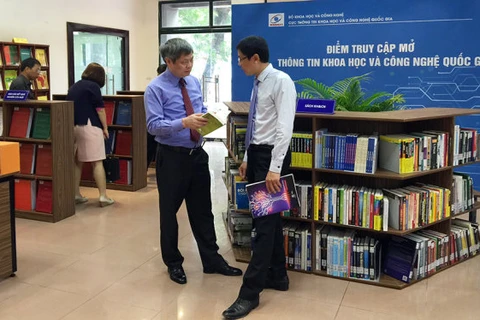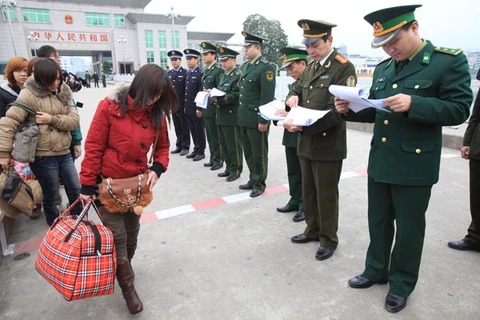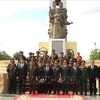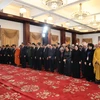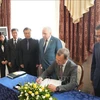Hanoi (VNA) – The Ministry of Justice and the United Nations Development Programme (UNDP) co-held a seminar in Hanoi on December 24 to introduce leaflets on the Law on Access to Information.
In her opening speech, Nguyen Thi Hanh, deputy head of the ministry’s Department of Criminal and Administrative Legislation, said the ministry defines communication as an important task to put the provisions of the law into life and help raise State agencies’ awareness of the responsibility for providing information on areas of their charge.
The ministry has coordinated with relevant ministries, agencies and localities in organising conferences, seminars and training courses on the law as well as compiling and issuing question-and-answer documents on this content, she said.
However, Hanh noted that popularisation measures need to be diversified, including leaflets, in order to help people, especially those from ethnic minority groups and mountainous, remote and island areas, better their understanding of the right to information access.
Catherine Phuong, a UNDP representative in Vietnam, ensuring people’s right to information access is one of the important criteria for Vietnam to achieve sustainable development goals. One of the measures to ensure the right is the effective implementation of the Law on Access to Information, which took effect on July 1, 2018.
This is an important document detailing the people’s right to information access and State agencies’ information provision responsibility, she noted.
She emphasised the need to distribute leaflets to help people better understand the provisions of the law.
At the seminar, a representative from the Department of Criminal and Administrative Legislation introduced two kinds of leaflets, with each featuring those entitled to information access, information that may be accessed, rights and obligations of citizens in accessing information, and procedures for requesting information provision, among others.
Accordingly, citizens are free to access information publicized by State agencies or ask State agencies to provide information. State agencies publicise information by posing on their websites or mass media, receiving citizens, and organising press conferences and issuing press releases.
For those living in border, island and mountainous areas can perform their right to information access via broadcasting and television systems, specialised documents, leaflets and publications, and community activities.
Meanwhile, State agencies will have their portals and websites equipped with basic functions to support disabled persons in accessing information.-VNA
In her opening speech, Nguyen Thi Hanh, deputy head of the ministry’s Department of Criminal and Administrative Legislation, said the ministry defines communication as an important task to put the provisions of the law into life and help raise State agencies’ awareness of the responsibility for providing information on areas of their charge.
The ministry has coordinated with relevant ministries, agencies and localities in organising conferences, seminars and training courses on the law as well as compiling and issuing question-and-answer documents on this content, she said.
However, Hanh noted that popularisation measures need to be diversified, including leaflets, in order to help people, especially those from ethnic minority groups and mountainous, remote and island areas, better their understanding of the right to information access.
Catherine Phuong, a UNDP representative in Vietnam, ensuring people’s right to information access is one of the important criteria for Vietnam to achieve sustainable development goals. One of the measures to ensure the right is the effective implementation of the Law on Access to Information, which took effect on July 1, 2018.
This is an important document detailing the people’s right to information access and State agencies’ information provision responsibility, she noted.
She emphasised the need to distribute leaflets to help people better understand the provisions of the law.
At the seminar, a representative from the Department of Criminal and Administrative Legislation introduced two kinds of leaflets, with each featuring those entitled to information access, information that may be accessed, rights and obligations of citizens in accessing information, and procedures for requesting information provision, among others.
Accordingly, citizens are free to access information publicized by State agencies or ask State agencies to provide information. State agencies publicise information by posing on their websites or mass media, receiving citizens, and organising press conferences and issuing press releases.
For those living in border, island and mountainous areas can perform their right to information access via broadcasting and television systems, specialised documents, leaflets and publications, and community activities.
Meanwhile, State agencies will have their portals and websites equipped with basic functions to support disabled persons in accessing information.-VNA
VNA

